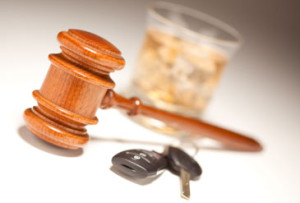The short answer is that no one knows.
Critics of stricter DUID bills claim that, since Colorado’s DUI conviction rate is reported to be nearly 90%, there is no need for additional laws governing drugged driving.
 There are two problems with that statement. First of all, Colorado’s current DUI law, C.R.S. 42-4-1301 (1), does not distinguish between alcohol-impaired driving (DUI) and drug-impaired driving (DUID). Therefore, Judicial data that are commonly cited for the 85% – 90% conviction rates cannot distinguish between DUI and DUID. The vast majority (likely over 95%) of DUI citations are for alcohol. A very high conviction rate for alcohol DUI is to be expected, since alcohol per se legislation supports DUI convictions. Since we have no comparable drug per se legislation, a similar conviction rate for DUID is not likely. Anecdotal evidence suggests that less than one-third result in successful convictions. But Judicial data simply cannot tell us what DUID conviction rates are.
There are two problems with that statement. First of all, Colorado’s current DUI law, C.R.S. 42-4-1301 (1), does not distinguish between alcohol-impaired driving (DUI) and drug-impaired driving (DUID). Therefore, Judicial data that are commonly cited for the 85% – 90% conviction rates cannot distinguish between DUI and DUID. The vast majority (likely over 95%) of DUI citations are for alcohol. A very high conviction rate for alcohol DUI is to be expected, since alcohol per se legislation supports DUI convictions. Since we have no comparable drug per se legislation, a similar conviction rate for DUID is not likely. Anecdotal evidence suggests that less than one-third result in successful convictions. But Judicial data simply cannot tell us what DUID conviction rates are.
Secondly, not all of the conviction rates reported by Judicial are DUI convictions. Some are convictions or plea bargains for lesser crimes.
An analysis of 40,000 COLORADO Judicial records of DUI charges from July 1 to Dec 31, 2010, showed:
73% were found guilty of DUI and/or DUI per se
11% were found guilty of a lesser charge
Here’s why a conviction of DUI, when warranted, is important. Victims of DUI receive some solace for their loss when a defendant is convicted of vehicular homicide or vehicular assault and DUI, which are Class 3 and Class 4 felonies, respectively. Vehicular homicide and vehicular assault without DUI are Class 4 and Class 5 felonies, respectively, and the presumptive sentencing ranges are dropped by 50%.
Recognizing the importance of good data to drive legislative decisions, some states have separate codes for alcohol DUI, drug DUI, and combined DUI. The latest state to adopt such a code structure is California, with its AB 2552. DUID Victim Voices supports such legislation in all states.
